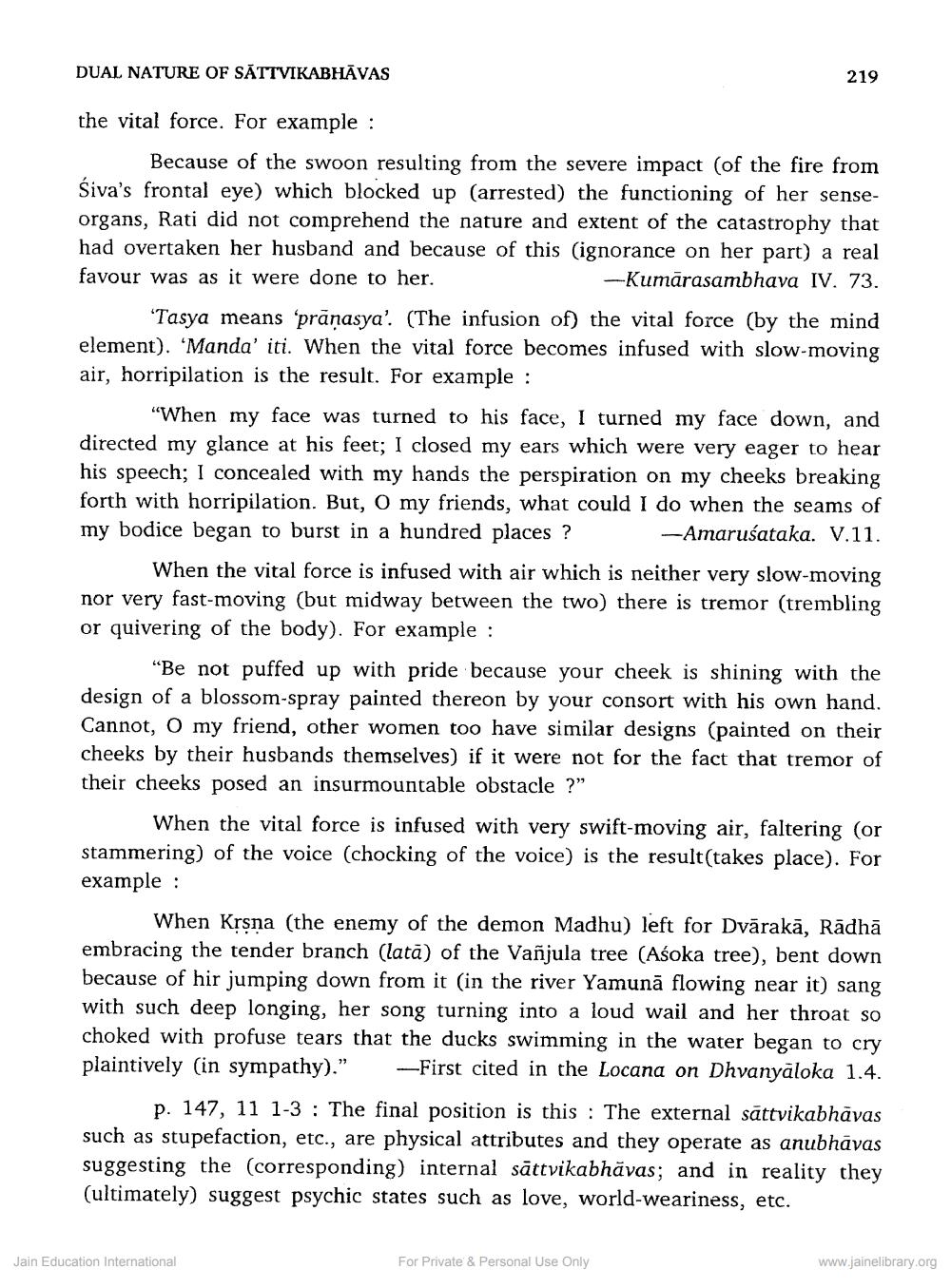________________ DUAL NATURE OF SATTVIKABHAVAS 219 w the vital force. For example Because of the swoon resulting from the severe impact (of the fire from Siva's frontal eye) which blocked up (arrested) the functioning of her senseorgans, Rati did not comprehend the nature and extent of the catastrophy that had overtaken her husband and because of this (ignorance on her part) a real favour was as it were done to her. --Kumarasambhava IV. 73. 'Tasya means 'pranasya'. (The infusion of) the vital force (by the mind element). 'Manda' iti. When the vital force becomes infused with slow-moving air, horripilation is the result. For example : "When my face was turned to his face, I turned my face down, and directed my glance at his feet; I closed my ears which were very eager to hear his speech; I concealed with my hands the perspiration on my cheeks breaking forth with horripilation. But, O my friends, what could I do when the seams of my bodice began to burst in a hundred places ? -Amarusataka. V.11. When the vital force is infused with air which is neither very slow-moving nor very fast-moving (but midway between the two) there is tremor (trembling or quivering of the body). For example : "Be not puffed up with pride because your cheek is shining with the design of a blossom-spray painted thereon by your consort with his own hand. Cannot, O my friend, other women too have similar designs (painted on their cheeks by their husbands themselves) if it were not for the fact that tremor of their cheeks posed an insurmountable obstacle ?" When the vital force is infused with very swift-moving air, faltering (or stammering) of the voice (chocking of the voice) is the result(takes place). For example : When Krsna (the enemy of the demon Madhu) left for Dvaraka, Radha embracing the tender branch (lata) of the Vanjula tree (Asoka tree), bent down because of hir jumping down from it in the river Yamuna flowing near it) sang with such deep longing, her song turning into a loud wail and her throat so choked with profuse tears that the ducks swimming in the water began to cry plaintively (in sympathy)." -First cited in the Locana on Dhvanyaloka 1.4. p. 147, 11 1-3 : The final position is this : The external sattvikabhavas such as stupefaction, etc., are physical attributes and they operate as anubhavas suggesting the corresponding) internal sattvikabhavas; and in reality they (ultimately) suggest psychic states such as love, world-weariness, etc. Jain Education International For Private & Personal Use Only www.jainelibrary.org




